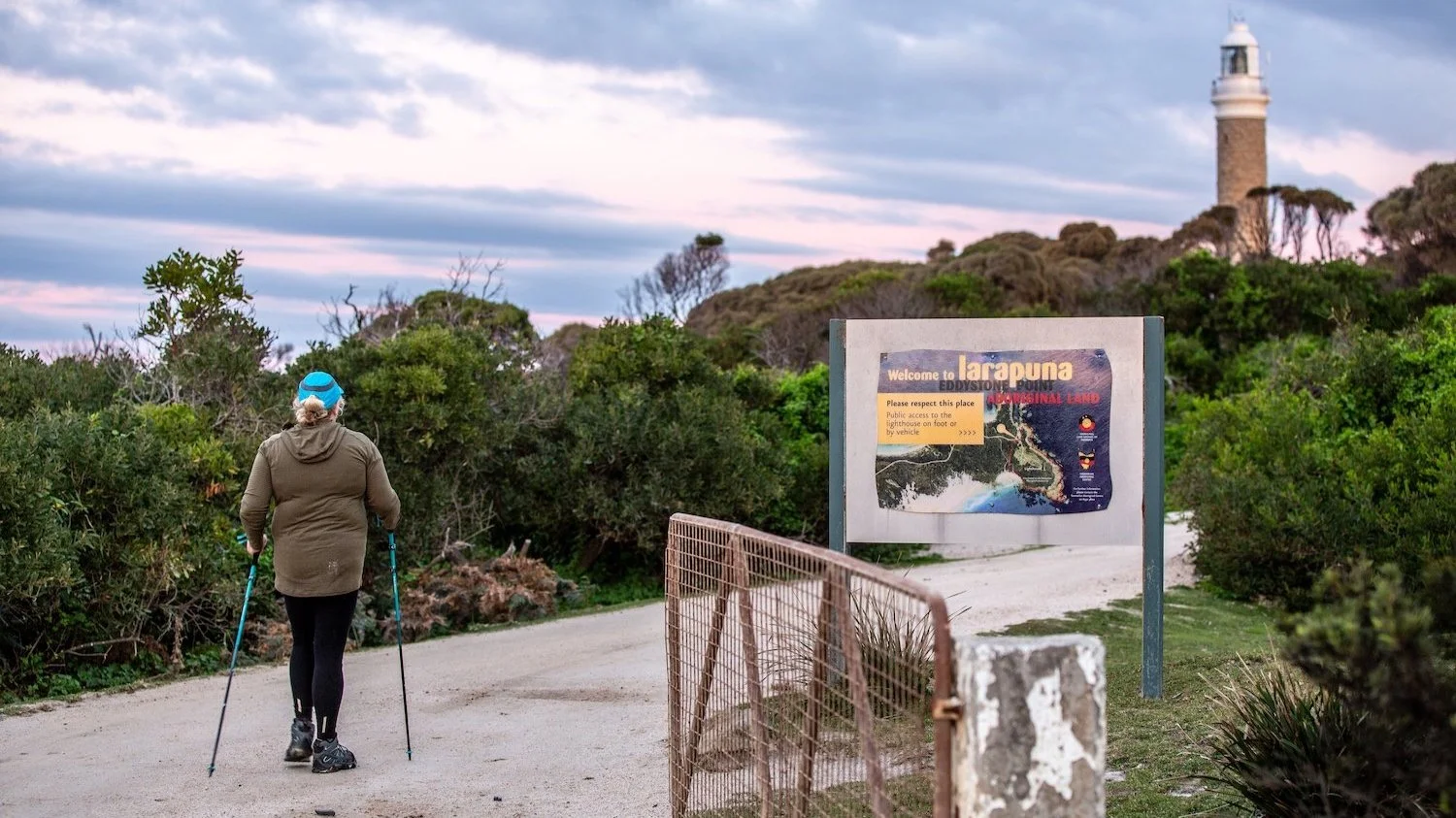our language
palawa kani is being taught to our young ones and used more and more often. The TAC’s palawa kani Language Program has created a palawa kani dictionary, now in its second edition, which guides often carry on wukalina Walk
Our community uses the terms 'Palawa' and 'Pakana' interchangeably, which both mean 'Tasmanian Aboriginal' person/people. However, it's essential to never assume how an Aboriginal person identifies; instead, inquire about their personal preference.
palawa kani place names are displayed in the standard dual name format separated by a forward slash. For example: Lutruwita/Tasmania, Nipaluna/Hobart, Kanamaluka/River Tamar.
The palawa kani dictionary is currently not available for the broader public to borrow or purchase. This intentional decision allows us the time to deepen our connection with palawa kani and become proficient in our language, ensuring its respectful passage down through our community. Your understanding and respect for this decision are appreciated.
To learn some palawa kani words, listen to pronunciations by Pakana woman Theresa Sainty – an Aboriginal linguistic consultant and senior scholar – on 50 Words Project.
___
Language, far beyond mere communication, defines our uniqueness and anchors our sense of identity. It serves as a vessel for cultural knowledge and heritage, providing a profound sense of belonging and empowerment.
Before invasion in 1788, so-called Australia was home to over 250 languages and 800 dialects, each tied to specific regions and communities. The impacts of invasion and colonisation, particularly of government policies around forced relocation and removal of children, devastated language transmission.
In some communities, generational links were severed and, in others, the threat of family separation forced people to only speak language in secrecy. Today, only about 120 Aboriginal and Torres Strait Islander languages remain and 90% of those are endangered.
Speaking and learning our first language is therefore a powerful act of cultural preservation. And, despite lying dormant, languages are never truly lost. Through the recollections of Elders and historical records, languages are being recovered and revitalised for the benefit of future generations and Country.
Our commitment to maintaining, controlling and protecting our language, our culture and our Country remains unwavering. Yet we need support and opportunities to reconstruct, revitalise, learn and teach palawa kani through funding and programs within and beyond our communities.

